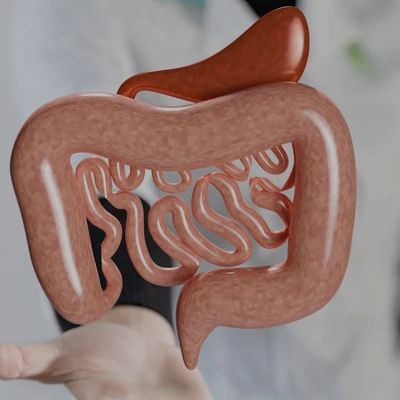Ulcerative colitis (UC) is a chronic inflammatory bowel disease, that leads to inflammation and ulcers in the colon and rectum, with its exact causes still unclear. In recent years, the incidence of UC has been rising steadily in Asia, with China seeing an annual prevalence increase to 11.6 cases per 100,000 people.
Growing interest in the biopsychosocial model of treatment focus developed during the last two decades has highlighted the significant role mental health plays in UC. Research shows a strong link between UC flare-ups and psychological disorders, with depression affecting 29% to 35% of patients. Among those with recurrent UC, 60% experience depression, which not only increases the risk of relapse but also worsens their quality of life.
Linking Gut Microbiota Changes to Depression in Ulcerative Colitis Patients
UC patients often have changes in the balance of bacteria in their gut, known as the gut microbiota. Research shows that UC is closely linked to disruptions in these gut bacteria. The gut microbiota plays an important role in supporting the immune system in the digestive tract.
Studies have shown that the areas with the most inflammation in the gut of UC patients are also where there is the highest concentration of bacteria. This is probably explained by the response of our immune system within our gut mucosa that happens when the balance of the dominant bacterial species and the additional or pathological microorganisms is altered.
Recent research shows that gut microbiota not only supports digestive health but also plays a key role in the connection between the gut and brain, known as the microbiota-gut-brain axis (MGBA). This connection influences how the brain works and even affects behavior. Normally, the gut acts as a barrier to prevent harmful bacteria from entering the bloodstream and affecting the immune and nervous systems.
However, in people with inflammatory bowel diseases like UC, this barrier becomes weak, allowing harmful substances to spread through the body. This can lead to increased inflammation and stress in both the brain and body, potentially triggering depression. Some of the chemicals produced by gut bacteria can directly affect how our nervous system works, further linking gut health to mental well-being.

Research on Specific Microbiota linked to depression
In a study conducted in Shanghai, China, from March 2017 to February 2018, researchers investigated the link between depression and ulcerative colitis, aiming to identify specific microorganisms that may contribute to the development of depression in patients with UC.
Patients diagnosed with ulcerative colitis were examined and studied by comparing their clinical features, including diarrhea recurrence, abdominal pain, urgency, and other extraintestinal manifestations, with those of a healthy control group. Endoscopic features were also assessed.
There were 3 study groups: UC with depression, UC without depression, and healthy control. Fecal samples were collected for bacterial genomic DNA extraction. Each sample was tested using a method called PCR, which helps identify specific bacteria. We used special primers to target certain parts of bacterial DNA.
The study included 31 patients in each of the three groups:
- Those with ulcerative colitis (UC) and depression
- Those with UC but without depression
- Healthy control group.
All groups were similar in terms of age, disease duration, and type of UC. However, patients with UC and depression had more severe UC symptoms compared to those without depression. Specifically, 45% of patients with UC and depression experienced severe symptoms, whereas only 13% of patients with UC alone had such severe symptoms.
Gut bacteria analysis
The analysis of microbiota from each group led to positive overall conclusions. Out of the 93 fecal samples tested, the healthy control group had the highest levels of microorganisms and the greatest variety. In contrast, the group with ulcerative colitis and depression showed the lowest levels and variety of microorganisms.
Researchers looked at more than just the number of microorganisms; they also examined their diversity across different categories, such as kingdoms, classes, families, genera, and species. They found that not only was there a reduction in the number of microorganisms in the UC with depression group, but there was also a noticeable drop in the variety of species present. This group had the least diversity in terms of the range of microorganisms compared to the other groups.
Conclusions
Researchers discovered significant differences in disease intensity when comparing the three groups. They found that the amount and variety of gut bacteria differed between the healthy control group, the group with ulcerative colitis (UC) but no depression, and the group with UC and depression.
Overall, UC patients had fewer and less diverse gut bacteria compared to healthy individuals. Specifically, UC patients had higher levels of Firmicutes and lower levels of Bacteroidetes compared to healthy controls. Moreover, the group with both UC and depression had even more severe imbalances in their gut bacteria.
Even though this study had positive and encouraging results regarding the association of Ulcerative Colitis and depression; some disadvantages must be acknowledged including the small number of patients that were studied. This is why you’re experiencing ulcerative colitis and are struggling with depression, participating in clinical trials could be a valuable opportunity to help advance our understanding of these conditions. Your involvement can contribute to groundbreaking research aimed at improving treatments and outcomes for others facing similar challenges.

